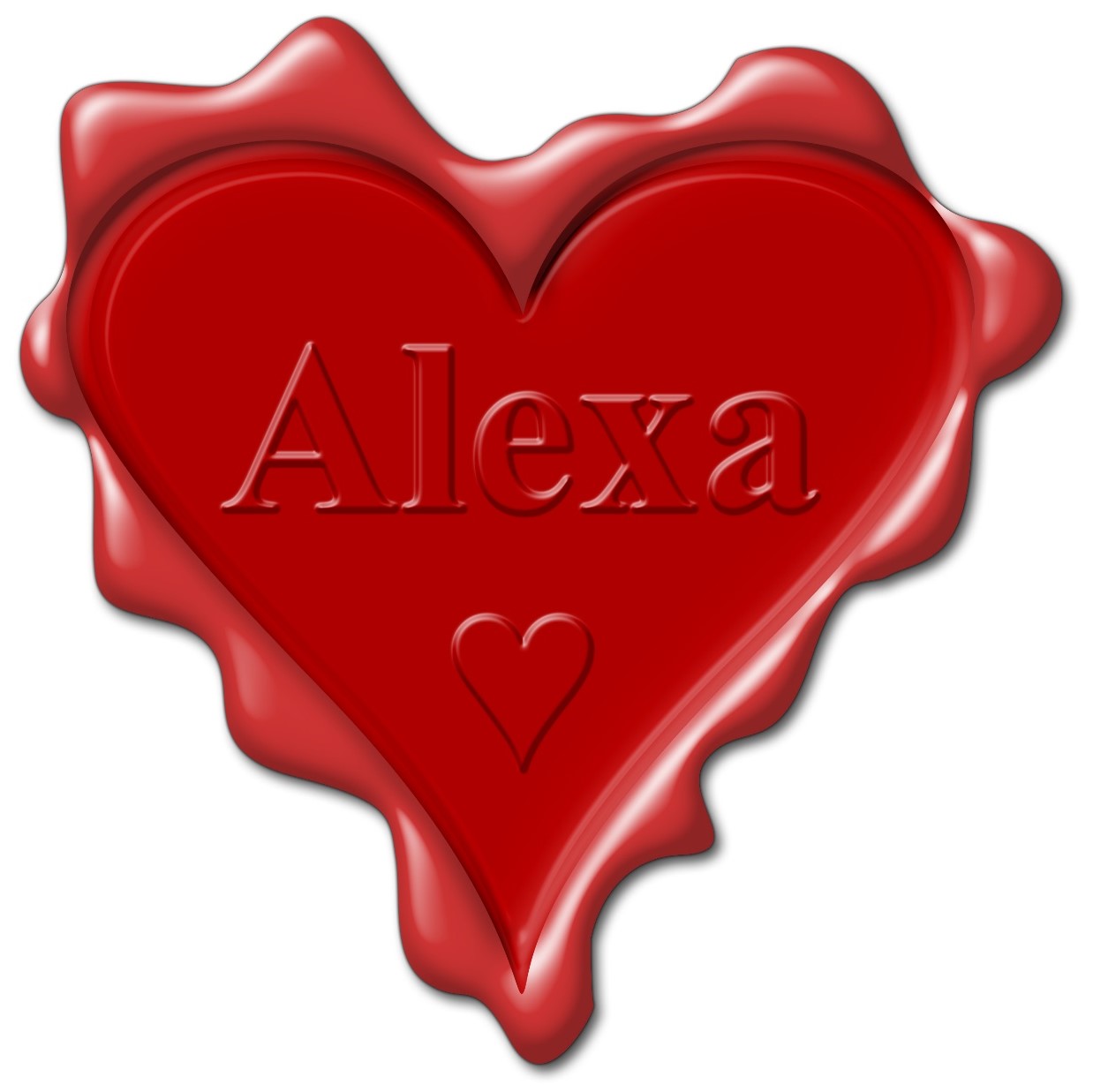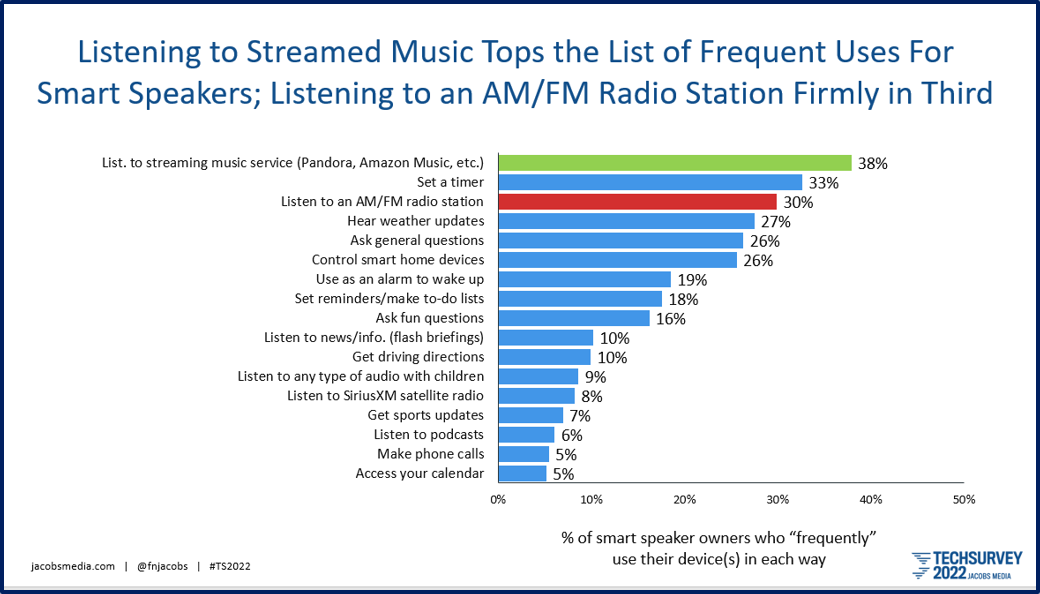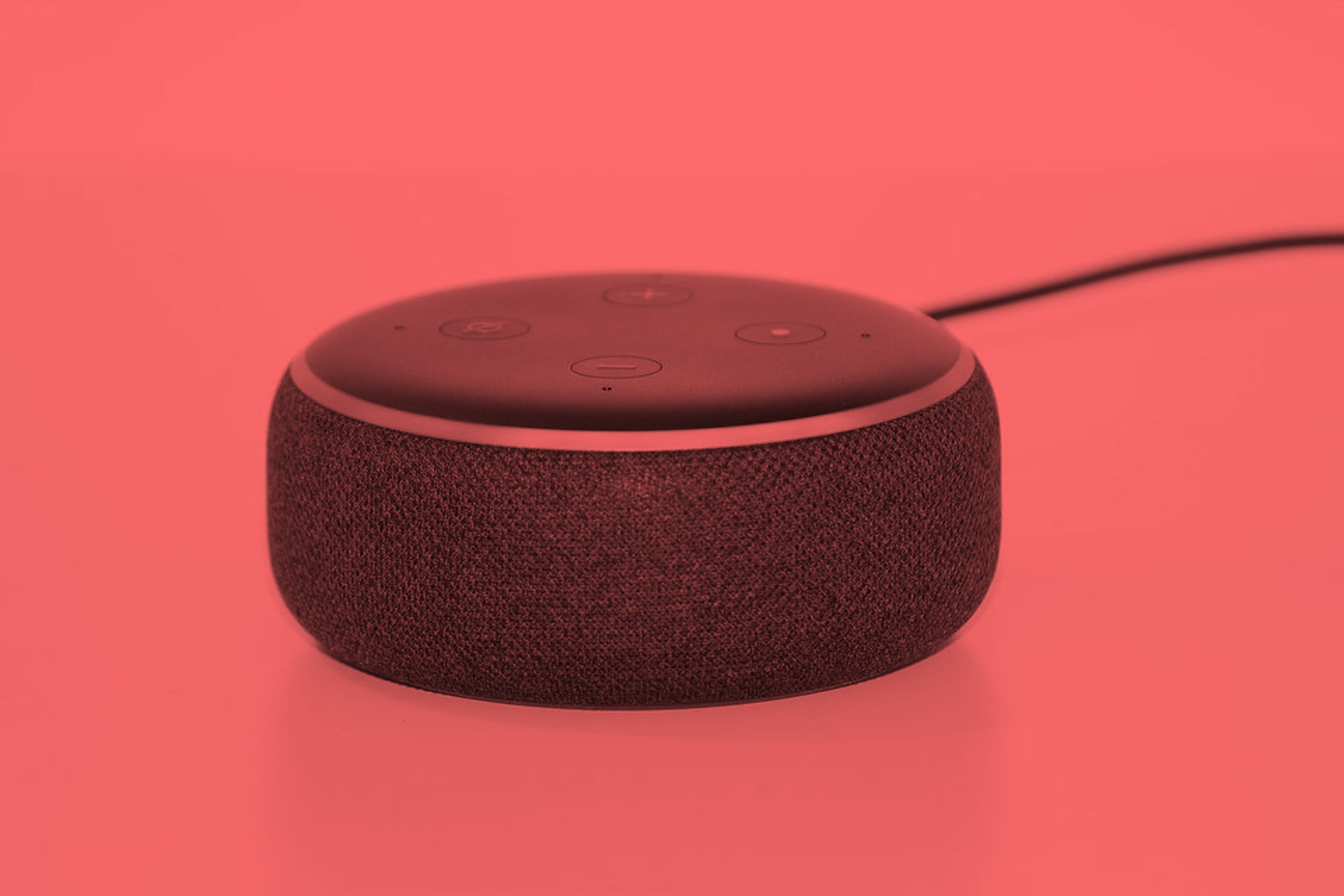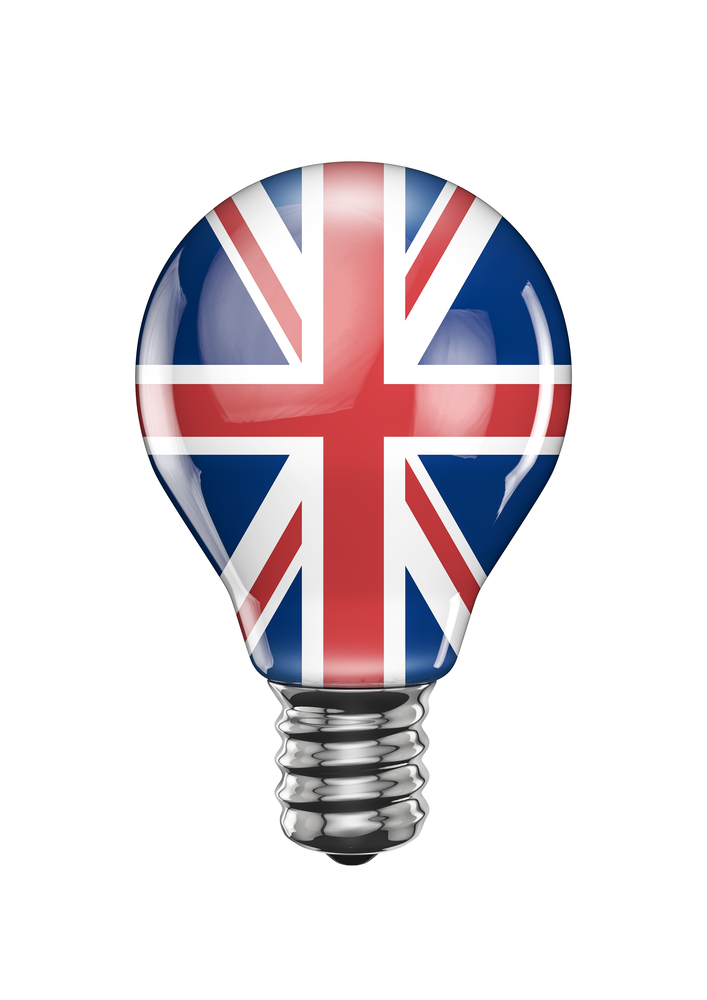
All eyes…and ears…are focused on the UK this week.
Queen Elizabeth’s passing specifically, and the ascension of Prince/now King Charles, and “the royals” in general captivate us in America. The current iconic news from the British Isles has us captivated.
Of course, the Brits have been setting a lot of our cultural trends in the States for decades. We’re coming up on 60 years since the British Invasion took over the U.S. music charts, starting with the Beatles. We still feel the tsunami-like impact of that movement all these years later.
And now, a British radio operator is making waves, changing up the way radio is messaging its call to action in 2022. The channel is called Heart (cool name), owned and operated by a company called Global.
It’s not difficult to break down their latest strategy. Heart is banking its growth and expansion on new distribution technology – specifically Amazon Echo – a.k.a. “Alexa.”
Our Techsurveys for commercial, public, and Christian music radio have revealed that particularly in the past couple years, a prime “use case’ for smart speakers is….
…listening to AM/FM radio stations.
This year’s Techsurvey 2022 is a case in point. The #3 most frequent use of smart speakers among core radio listeners is shouting out their favorite stations:

Undoubtedly, the Heart team and their agency, Adam & Eve/DDB, saw the same opportunity in the UK (although Alexa is clearly the more popular smart speaker brand in the U.S. than across the pond).
And they’re leaning into it….heavily.
A slick new TV spot asks for the order, integrating Heart’s airstaff with everyday people going through their daily routines. Here’s the commercial they’ve launched:
https://www.youtube.com/watch?v=dxf0SYTJvFY&list=TLGGEvNZiXRSCdExMjA5MjAyMg&t=11s
When I pulled it off YouTube yesterday, it already had north of one million views. And that’s Lizzo on the soundtrack singing “It’s About Damn Time.”
If you’ve worked in U.S. radio for a time, you’ve seen variants of this TV commercial before, back when stations and morning shows were commonly marketed on television. The concept – the morning show sitting with the average family in the kitchen or packing the team in the car for the commute to work – was utilized in multiple markets here in American radio back in the 70’s and 80’s.
The difference – and it’s a big one – is that Global sees a rich opportunity to expand its audience, while recognizing that “regular radios” are nowhere near as ubiquitous in UK homes as they once were.
Still, this is quite an investment. So, what is Global thinking?
In a story in The Drum, it turns out the concept is a partnership with Amazon. (Wonder if they’d be open to doing something here?)
In “Why a radio channel ran a TV ad urging people to listen on Amazon Alexa,” Samantha Codrington, director brand marketing at Global, explains that besides marketing Heart’s personalities, the main goal is to “teach” the audience they can listen to radio – specifically Heart – on Amazon Alexa devices.
As she notes, “The brief was simple – to grow awareness that you can listen to Heart on an Alexa. We’re trying to encourage a new habit, in a new place, with new tech. Radio is dead easy to listen to on Alexa devices, but not everyone knows that.”
you can listen to Heart on an Alexa. We’re trying to encourage a new habit, in a new place, with new tech. Radio is dead easy to listen to on Alexa devices, but not everyone knows that.”
if it were only that simple. Of course, the impact of the campaign will be simple to measure, utilizing “brand lift” studies and the ratings.
At the end of the day, it’s all about encouraging an audience to acquire (or us their) Alexa devices, and say, “Alexa, play Heart.”
As my British friends might say, “Brilliant!”
I hope it works for them, and encourages other radio broadcasters to invest in big marketing efforts for their stations.
There was a time when British broadcasters would journey to the U.S., sit in hotel rooms in New York, L.A., and Chicago to listen to remarkable American radio stations.
 As I’ve learned over the years at Radio Days conferences, innovative radio is being done in the UK, and throughout Europe, Australia, and in other countries far from U.S. shores.
As I’ve learned over the years at Radio Days conferences, innovative radio is being done in the UK, and throughout Europe, Australia, and in other countries far from U.S. shores.
Today, wouldn’t it be nice if that trend reversed, and the phenomenon of TV campaigns made their way back across the Atlantic?
(OK, a consultant can dream.)
The Heart campaign may be red-themed, but it will make most American radio broadcasters green with envy when they see it.
- In Radio, You Just Never Know - April 17, 2025
- The Secret To Making A Great Podcast (And Great Radio) - April 16, 2025
- I Read The (Local) News Today, Oh Boy! - April 15, 2025




Wow, radio actually promoting itself on other media. What’s next, going out to concerts and other events and being seen in public? Oh, wait, that would cost money.
Indeed it would, Brian. What a concept!
This is theoretically great news, but how does it fare with the multiple surveys that show that smart speaker usage drops immensely after the first 30 to 90 days? At least in the US, for many people the smart speaker is a toy that they play with for a while and then get tired of. So either they have some sort of inkling that the Brits treat their smart speakers differently or they missed the memo and are spending a ton of money to market to a small subset of people who still use their smart speakers every day.
It’s sort of like if an American broadcaster spent money promoting their HD2 station. You’re talking to a tiny sliver of the population. Don’t get me wrong, it’s great to see radio advertising and I wish them well, but I just Wonder if they are targeting a message at a small and potentially very fluid group of listeners.
I had a similar thought, Mark. Strategically, you can shoot holes in this campaign. But tactically, it’s pretty cool. And let’s not forget they’re also promoting their brand and their high-profile personalities.
It must be geofenced. When I asked Alexa to play Heart, I got Ann and Nancy.
Good enough reason for me!
OF course the cynics in our world will make fun of a radio company advertising on other media (d’ya think they do outdoor too?) -but fact is any way you can let the general public know you exist is a total positive. Conventional wisdom in the early days of consolidation.. “we have 7 other signals to promote your station. Why do outside media?”. One of local station hit the ground with TV..and 2 years later they’re at the top of the ratings heap. Consistently. The name of the station-average. The message-limited but the idea is definitely there. Imagine this: a station finds a need in its market, fills that need and markets itself with the right message (including telling “Alexa” to play the station). You might just find another success story. Mass media exposure still works. Now, if we could only re-purpose Film House.
I was thinking of that very same station! And since they moved into first, I’ve seen a TV spot now for another iconic station from south of the border. And its a great spot, too. What do you think, Dave? Could radio actually be watching, learning and (gasp!) following such success?
Global, who own Heart, bough the biggest outdoor ad company a few years back. They heavily promote their station brands on their outdoor.
Dave, I think your comment sums up what many of your peers are thinking. Thanks for articulating it.
While it’s not exactly the same, Australia’s Nova Entertainment pointedly included Alexa in its recent (re)launch of local DAB+ versions of smoothfm in Adelaide, Brisbane, and Perth…
“Kate Burleigh, country manager for Amazon Alexa ANZ, said: ‘We’re thrilled to partner with NOVA Entertainment on this launch, and bring smoothfm into the homes of even more customers around Australia. We know that customers love asking Alexa to play their favourite radio stations and increasingly they are adding Amazon Echo smart speakers to multiple rooms in their homes which is extending radio listening patterns.’”
https://www.mediaweek.com.au/smoothfms-feel-good-campaign-to-launch-nationwide
Eric, so let me ask the question I have to believe many American broadcasters are wondering about. Why isn’t Amazon partnering with U.S. radio companies? Or is it because they haven’t asked?